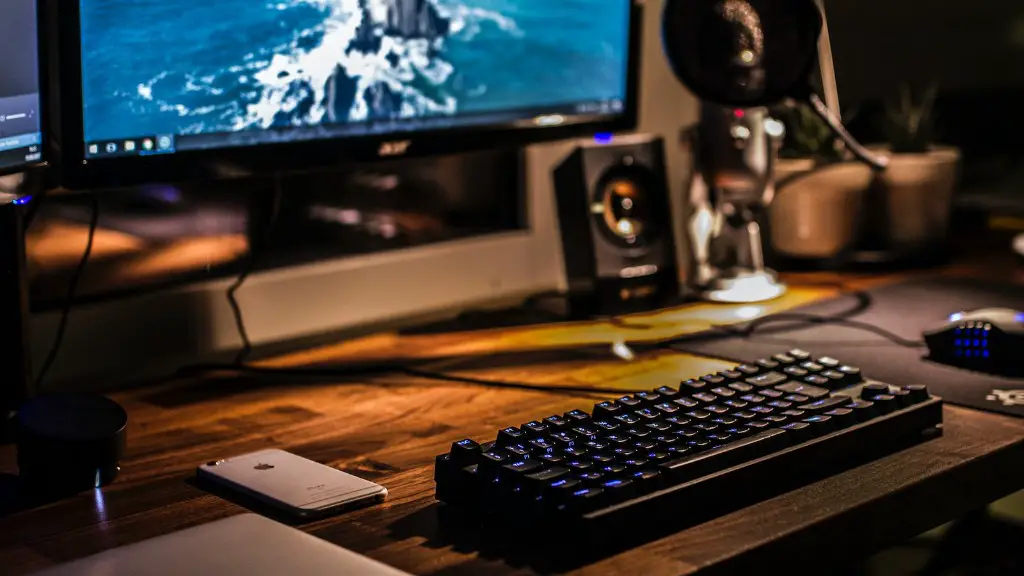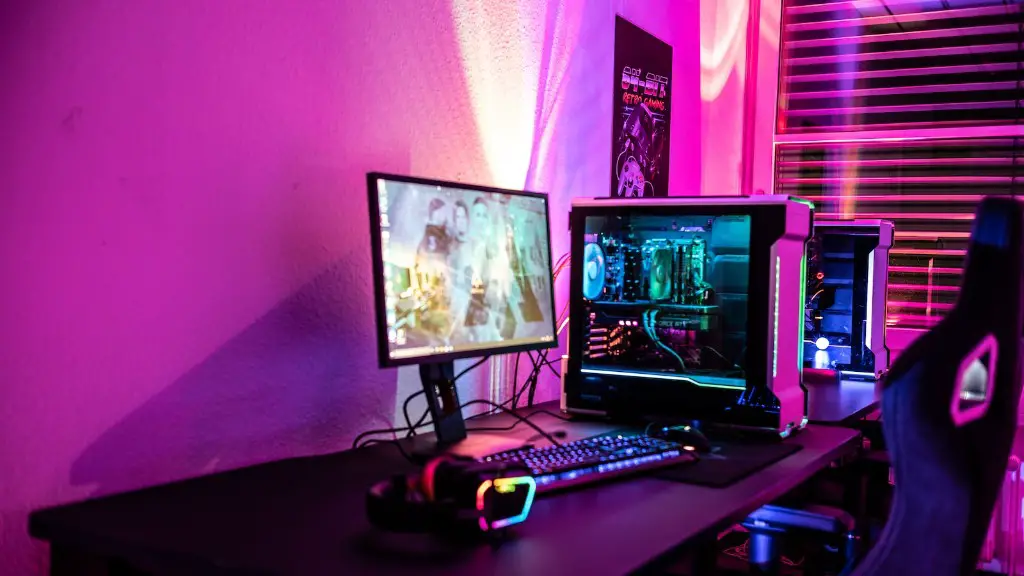When shopping for a gaming PC monitor, gamers need to consider a few factors. Firstly, gamers should think about the size and resolution of the monitor, which will determine how immersive the gaming experience will be. Both 4K and 1440P resolutions offer sharp images, but gamers should choose a monitor size that suits their room, budget and display preferences. Secondly, gamers should ensure the display has fast refresh and response times, as these will make all the difference when playing fast-paced games. 144Hz and higher monitors will reduce motion blur and reduce input lag, while higher response times will result in better visuals and responsiveness. Thirdly, gamers should look for gaming monitors with wide viewing angles, to make sure they don’t miss a single pixel of their gaming world. The right gaming monitors will usually have an IPS (in-plane switching) display panel, which boasts superior color accuracy and wider viewing angles.
Fourthly, color accuracy is essential for gaming performance as well. If the monitor has too little color accuracy, gamers might not be able to properly discern enemies and their environment. Gamers should search for monitors with good dithering and 8-bit display panels, which will provide superior color capabilities. Additionally, gamers should look for monitors with low motion blur and with adjustable settings, such as brightness, contrast and color temperature.
Lastly, gamers should also take into consideration the display ports and connectors. Make sure the monitor comes with one or more HDMI or DisplayPort connectors, allowing gamers to connect their console and peripherals without a hassle. Also, look for gaming monitors with USB ports, to make sure all your devices can be connected within a single connection. In some cases, gamers should even look for monitors that have DisplayPort daisy chaining technology, which allows for multiple displays to be connected via a single DisplayPort, eliminating cable clutter and providing the best gaming experience for anyone.
Types of Gaming Monitors
When shopping for a gaming PC monitor, gamers need to consider what type of gaming monitor they need. IPS (in-plane switching) monitors usually offer better color accuracy and viewing angles for gaming, whereas TN (twisted nematic) panels typically have faster response rates (1 ms). VA (vertical alignment) panels may offer the best of both worlds, but they might also suffer from ghosting or blurring in fast-paced games or competitive gaming scenarios. Additionally, gamers should make sure their monitor is compatible with the latest gaming technologies, such as G-Sync and FreeSync, which help reduce on-screen tearing and provide a smoother gaming experience.
Warranty & Service
It’s also important to research the warranty and customer service offered by the manufacturer before making a purchase. Gamers should look for monitors with a minimum of two or three years warranty, to ensure it’s covered in case of any defects. Additionally, check the customer reviews to make sure a company offers reliable and prompt support and response times should the monitor need servicing.
Gaming Monitor Accessories
Aside from the main features, gamers also need to think about the accessories that come with their monitor. It doesn’t hurt to choose a monitor bundle which includes HDMI and/or DisplayPort cables, a stand, and even head-mounted audio for a more immersive gaming experience. Multipurpose monitors with built-in speakers, USB ports, and gaming optimization software can also make gaming easier, as well as providing better visuals, audio, and overall performance.
Gaming Monitor Stand
Finally, gamers should consider their gaming set-up, particularly the monitor stand they will be using. For the best gaming experience possible, it’s best to pick a stand that allows for swivel, tilt, and height adjustability. This will enable gamers to adjust the viewing angles of their monitor, as well as its height and distance, to reduce eye strain. Standless and wall-mountable monitors might also be ideal for gamers who are short on space.
Considerations Before Buying a Gaming PC Monitor
In conclusion, when shopping for a gaming PC monitor, gamers must consider a few key factors. Firstly, gamers must select a monitor size and resolution that’s suitable for their room, budget, and display preferences. Secondly, shallow response times and a wide viewing angle are important for gaming performance; IPS panels typically offer both of these features. Next, color accuracy and adjustable settings, such as brightness, contrast, and color temperature are also essential. Additionally, every gaming monitor must come with an appropriate display port and ports, such as HDMI and USB. And lastly, consider monitor stands, warranty, and customer service when shopping for a gaming monitor.


